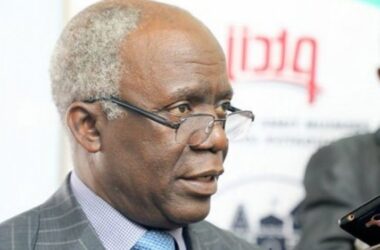Nigeria’s foreign exchange earnings from diaspora remittances may suffer a major blow following the passage of a new bill in the United States that seeks to impose a 3.5 percent tax on money transfers sent by non-citizens to recipients abroad.
The tax provision is part of the “One Big Beautiful Bill Act,” a broad legislative package introduced by US President Donald Trump and recently passed by the House of Representatives.
If this bill becomes law, it will apply to all international money transfers sent by individuals who are not US citizens, including green card holders and temporary visa holders. The tax will be deducted at the point of transfer by banks and money transfer platforms and paid to the US Treasury every quarter.
Unlike some taxes, this one has no exemption for small amounts, meaning even minor money transfers will be taxed. Experts believe this could lead to a big change in how people send money abroad, especially Nigerians, who are among the top global recipients of remittances.
Data from the Central Bank of Nigeria (CBN) shows that personal remittances into Nigeria reached $20.93 billion in 2024, the highest in five years. This inflow is a key source of foreign currency for Nigeria and helps support many households. The figure represents an 8.9 percent increase compared to the previous year.
The Centre for Global Development places Nigeria among the top 10 countries that would be most affected by this tax, alongside Mexico, India, China, and the Philippines. They note that Nigeria could lose up to $215 million each year in remittance value, which would hurt families and the economy.
While it is not clear exactly how much of Nigeria’s remittances come from the US, past research estimated Nigerians in America sent over $6 billion back home as of 2015. The new tax could discourage people from using formal channels and push them toward informal and unregulated ways to send money, which may be riskier and less secure.
The Agusto Diaspora Remittance Industry Report notes that Africa received about $94.8 billion in remittances in 2023, with Nigeria and Egypt taking nearly half of that. These funds are important not only for household spending but also for strengthening Nigeria’s foreign reserves.
The CBN recently launched a platform to make it easier for Nigerians abroad to send money home. The Non-Resident Bank Verification Number (NRBVN) allows Nigerians to get their Bank Verification Number without being physically present in Nigeria. The bank hopes this will increase remittance inflows to $1 billion per month. However, the new US tax bill threatens this goal.
Charles Sanni, CEO of Cowry Treasurers Limited, warned that the tax could reduce remittances significantly, hurt Nigeria’s foreign reserves, and push people toward unofficial channels. He said, “The US is saying ‘America First,’ so it is discouraging outflows, and that is what will have a negative impact on both senders and beneficiaries.”
Sanni also warned that the new tax regime might cause Nigerian investors abroad to move their money to countries with lower taxes, affecting investments. He pointed out that diaspora remittances, though not government revenue, are vital for balancing Nigeria’s foreign exchange and stabilizing the naira.
Economist Akpan Ekpo expressed concerns that the tax will increase illegal remittances and harm Nigeria’s economy during a difficult time. He said, “It will reduce the amount of official remittances to Nigeria by Nigerians and increase the illegal way of remittance, and that is not good for the economy…”










